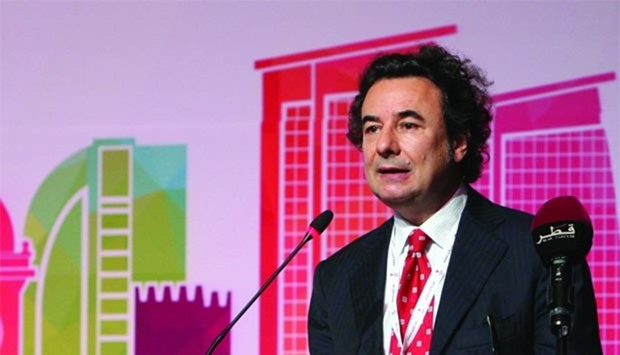Qatar’s “strategic location” makes it ideal for its small and medium-sized enterprise (SME) sector to serve as a hub for a wide range of markets in the Gulf region, an expert has told Gulf Times.
“Differentiation is now a key issue and a real challenge. I see Qatar as a hub that connects many markets; for SMEs or entrepreneurs, having a presence in Qatar is an opportunity because they can rely on the country’s extremely good business infrastructure.
“And this good business infrastructure shows how relevant is Qatar Development Bank (QDB), as well as the programmes of the Ministry of Economy and Commerce in supporting SMEs. On one side, you have a good business infrastructure and strategic location, while on the other side Qatar is close to many markets,” explained Andrea Di Anselmo, vice president and founding member of Italy-based Meta Group during a recent forum on “Smart SMEs” here.
Asked to provide an overview of Qatar’s SME sector, Di Anselmo noted that Qatar is one of the fastest growing economies in the region, and SMEs, especially those in the non-oil sector, “are one of the engines of that growth.”
“From Doha, SMEs and entrepreneurs can connect to other business opportunities elsewhere. That is why I see Qatar as a country where in the coming years, things will happen and change a lot for its entrepreneurship sector,” he said.
According to Di Anselmo, moving from an energy-based economy to a knowledge economy “requires a strong cultural generation shift.”
“My suggestion is to invest on the younger generation to help them become entrepreneurs, and to embrace business opportunities in the knowledge economy,” he said, citing sectors like ICT, medical technology, transportation, media, and even culture.
“All of these sectors are areas of business where young and talented people can create successful companies. And I know that Qatar is investing a lot in the future generation by providing them with the right solutions, which is a strong asset for the country,” he said.
Di Anselmo also noted that utilising both angel investors and business incubators is also another strategy to help provide financial support to SMEs and start-ups.
“I know that the government is providing a full-fledged portfolio of support, which is extremely effective. I also know that there is a lot of focus and attention to women entrepreneurs. At this point, I am very much impressed. Qatar is a country where angel investing can happen; the combination of both angel investors and business incubators is very important,” he said.
He stressed that the apps development industry is essential in helping educate young entrepreneurs “to be more enterprising, and get closer to the market.”
“At the end of the day, we know that in the app development world there is going to be a large concentration with just few winners. This is why I see it as a starting line and not the end point.
“It is the right foundation because it allows anybody who has an idea to start without infusing a lot of capital and resources, so this unleashes the potential of our younger generation,” he added.

Di Anselmo: Upbeat on Qatar's SME sector. PICTURE: Nasser T K
